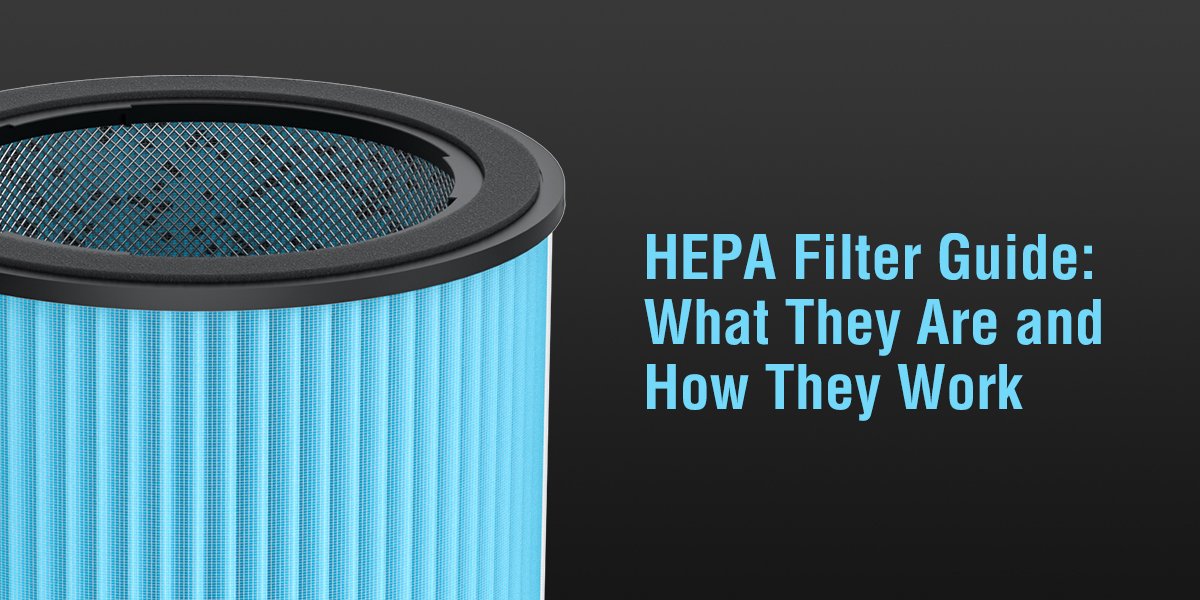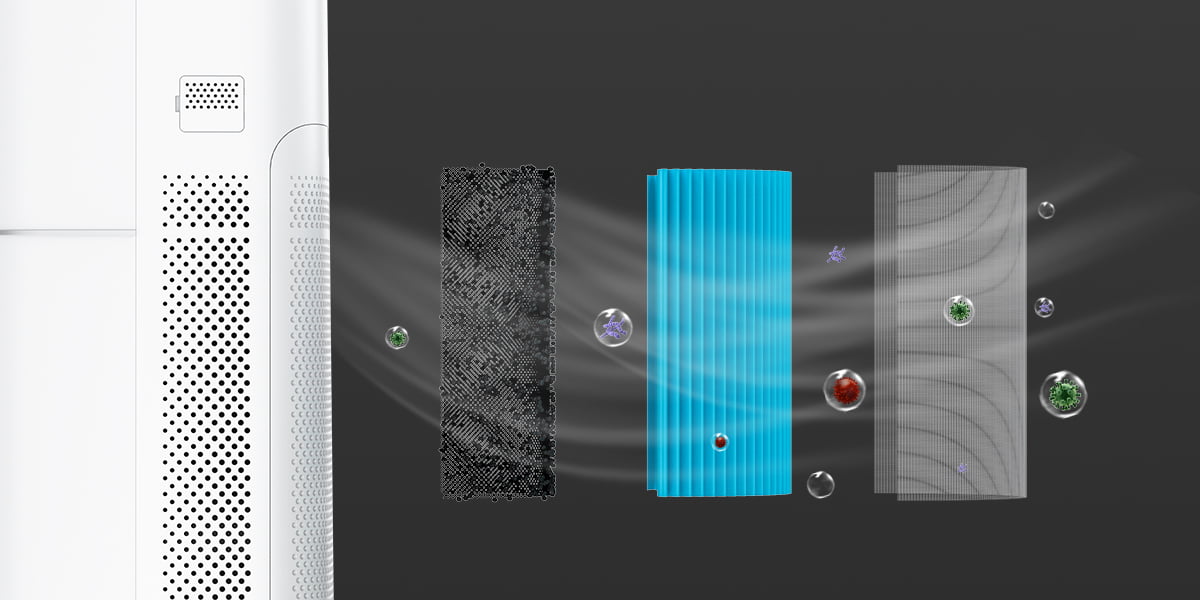HEPA Filter Guide: What They Are and How They Work
Household air purifier on the market generally use H13 HEPA filters to filter the air. It can effectively remove pollutants from the air and achieve the effect of purifying the air. HEPA (High Efficiency Particulate Air) filters are a type of air filter that is commonly used in air purifiers, vacuum cleaners, and other devices that clean the air. HEPA filters are designed to remove tiny particles from the air, including allergens, dust, and other pollutants. In this guide, we will explain what HEPA filters are, how they work, and the benefits of using them.

What Are HEPA Filters?
HEPA filters are made up of a thin, pleated sheet of material that is folded back and forth to create a dense barrier. This barrier is designed to trap tiny particles in the air as it passes through the filter. HEPA filters are made from a variety of materials, including fiberglass, paper, and synthetic fibers.
HEPA filters are classified based on their efficiency at removing particles from the air. To be classified as a true HEPA filter, the filter must be able to remove at least 99.97% of particles that are 0.3 microns or larger in size. This means that a HEPA filter can remove particles that are smaller than the diameter of a human hair.
How Do HEPA Filters Work?
HEPA filters work by using a combination of diffusion, interception, and impaction to trap particles in the air. When air passes through a HEPA filter, the particles in the air collide with the fibers in the filter. The larger particles are trapped by interception, which is when the particles collide with and stick to the fibers in the filter. The smaller particles are trapped by diffusion, which is when the particles move around and collide with other particles in the air until they are trapped by the fibers in the filter. The smallest particles are trapped by impaction, which is when the particles are moving so fast that they collide with the fibers in the filter and become trapped.
The design of the filter is also important in determining its effectiveness. HEPA filters are typically made up of multiple layers of filter material, with each layer designed to trap different size particles. The filters are also designed to create a high air flow rate, which helps to capture more particles in the air. Some HEPA filters also have an activated carbon layer, which can help to remove odors and other pollutants from the air.

Benefits of Using HEPA Filters
There are several benefits to using HEPA filters in air purifiers, vacuum cleaners, and other devices that clean the air. Here are some of the main benefits:
Improved Air Quality: HEPA filters can remove a wide range of pollutants from the air, including allergens, dust, and other particles. This can help to improve the air quality in your home or office and reduce the risk of respiratory problems.
Allergy Relief: HEPA filters can be particularly effective at removing allergens from the air, such as pollen, pet dander, and dust mites. This can help to reduce allergy symptoms and improve overall health.
Reduced Odors: HEPA filters with activated carbon layers can help to remove odors and other pollutants from the air, such as smoke and cooking smells.
Improved Energy Efficiency: HEPA filters are designed to create a high air flow rate while using less energy than other types of filters. This can help to reduce energy costs and improve energy efficiency.
Conclusion
HEPA filters are an effective way to remove pollutants from the air and improve air quality. They work by using a combination of diffusion, interception, and impaction to trap particles in the air. HEPA filters are classified based on their efficiency at removing particles from the air, with true HEPA filters able to remove at least 99.97% of particles that are 0.3 microns or larger in size. By using HEPA filters in air purifiers, vacuum cleaners, and other devices that clean the air, you can enjoy improved air quality, allergy relief, reduced odors, and improved energy efficiency.



